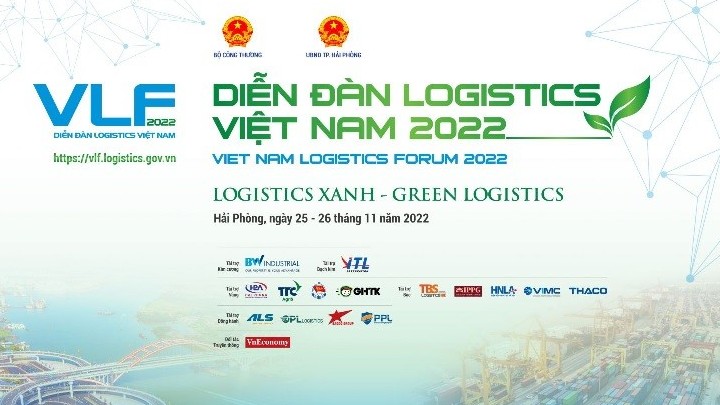
Vietnam logistics firms face global pressure to go green
Latest
 |
| According to the World Bank, transportation activities in Vietnam emit more than 50 million tonnes of CO2 each year. (Photo: Vneconomy) |
As consumers prefer environmentally friendly products and the transition to a greener economy is taking place globally, businesses are more interested in investing in green logistics, experts have said.
Green logistics can help decrease transportation costs and increase efficiency in the supply chain by optimising delivery routes and limiting the number of empty or half-loaded trucks on the road.
Tran Thanh Hai, Deputy Director General of the Agency of Foreign Trade under the Ministry of Industry and Trade (MoIT), said that the logistics industry has seen positive growth thanks to the continuous expansion of Vietnam's exports and its position as a leading exporter of rice, coffee, textiles, footwear, phones, and components. This has led to increased demand for international transport services, domestic transport, and distribution services.
However, due to an imbalance of transport infrastructure when road transport predominates over air, rail, and water transport. Greenhouse gas emissions from road transport are 21.95 times higher than those of air transport, 19.94 times higher than maritime transport, and 245.49 times higher than rail transport.
According to the World Bank, transportation activities in Vietnam emit more than 50 million tonnes of CO2 each year, with road transportation accounting for 85% of the total emissions. The figure is expected to increase by an average of 6-7% per year, hitting up to 90 million tonnes of CO2 per year by 2030.
Hai also pointed out that green logistics is not just a trend but a mandatory requirement in the future, meaning businesses could face barriers in terms of awareness and motivation to transition. Some businesses are well aware but are too small in scale or have limited finances to make reasonable investments. While there is a high demand for environmental friendliness, customers are not willing to spend much on sustainable logistics services.
According to Luong Hoang Thai, Director of the Multilateral Trade Policy Department under the MoIT, green logistics is a relatively new concept that is not understood fully and accurately in many developing economies, including Vietnam. Thus, understanding the essence and application of this activity will help businesses enhance their competitiveness and improve their brand name, aiming for comprehensive and sustainable development.
If businesses do not get involved in green logistics, they risk alienation and could gradually be phased out of business, trade, and import-export activities both domestically and globally, said Ngo Khac Le, Deputy Secretary General of the Vietnam Logistics Business Association. He also underlined the necessity to maintain communication campaigns and the involvement of the government and management agencies.
Le also suggested enterprises to effectively exploit inland waterways and maritime transportation to increase the volume of cargo and reduce emissions from vehicles. Domestic enterprises must speed up innovation, creativity, and digital transformation efforts, and vigorously implement green and smart logistics for import and export activities, he added.
Regarding Vietnam's green action plan by 2030, Hai recommended businesses complete relevant standards to reduce emissions from transportation and develop green logistics. They were also urged to shift to clean energy, environmentally friendly vehicles, and warehouses.
It is necessary for them to complete and synchronously roll out fuel quality management solutions, emission standard systems, and transport infrastructure to enhance connectivity and multi-modal transport, he said, adding that businesses should optimise transport and warehousing operations, promote digital governance in transportation, and build a logistics database, along with the development of a non-stop electronic toll collection system and the installation of smart traffic management systems for sustainable logistics development.
























